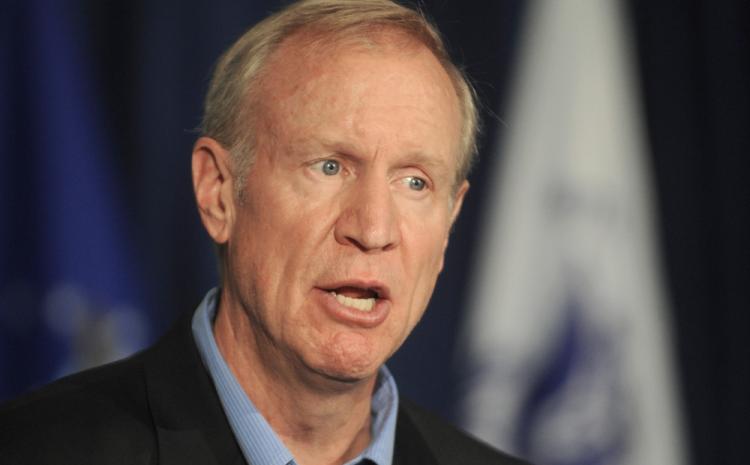CHICAGO – Illinois Gov. Bruce Rauner followed through on his promise to veto a school funding bill approved by lawmakers that he said “places the burden of the Chicago Public Schools’ broken teacher pension system on our rural and suburban school districts.”
Rauner issued an amended veto of an education funding bill less than a day after the Illinois Senate sent the approved legislation to his desk Monday, Rauner’s deadline for the measure, the Chicago Sun-Times reports.
MORE NEWS: Know These Before Moving From Cyprus To The UK
“This is not about taking resources away from Chicago,” he wrote. “This is about making historic changes to help poor children in Chicago and throughout the state of Illinois.”
The Sun-Times reports:
According to the governor’s office, the veto removed a minimum funding requirement; the Chicago block grant from the formula; the normal cost of pick-up for CPS pensions and unfunded liability deductions. It also removed “escalators” that he believed would increase costs, among other changes.
With just weeks before schools are scheduled to open for the fall, House Democrats accused Rauner of playing politics. And the governor accused them of the same.
The legislation would have sent $250 million to Chicago Public Schools, which Rauner has repeated referred to as a “bailout” for the chronically mismanaged district.
Rauner claims the bill approved on Monday “diverts money from classrooms across the state” to cover Chicago teachers’ pension payments, DNAinfo reports.
“I care deeply about the families in Chicago, the low-income students in Chicago,” Rauner said. “But all Illinois students deserve to be treated fairly.”
The General Assembly must now consider whether to override Rauner’s veto or to accept his changes – both moves that require approval from three-fifths of lawmakers in the House and Senate.
MORE NEWS: How to prepare for face-to-face classes
They have 15 days to decide or the measure dies.
Chicago Mayor Rahm Emanuel has vowed to open schools on Sept. 5 regardless of what happens.
“His claims have been proven false, and the only thing the governor’s action advances is his own personal brand of cynical politics,” Emanuel said of Rauner’s veto, according to DNAinfo. “It is well past time for Gov. Rauner to stop playing politics with our children’s futures, start demonstrating leadership and ensure a child’s education isn’t determined by their ZIP code or his political whims.”
Emanuel accused Rauner of “ignoring the needs of Illinois’ school children, the desires of school superintendents across the state, the voices of newspaper editorials across the state, and the recommendations of his own education funding commission,” the Sun-Times reports.
A top mayoral aide told the news site there’s a good chance Springfield lawmakers can muster the 36 votes in the Senate and 71 votes in the House to override Rauner’s veto.
“Every day that goes by, the chances of an override improve because there is no alternative. At the end of the day, there will be enough legislators who do not want to see schools fail to open,” the unidentified aide said. “I believe we will be able to work with them to accomplish the override.”
The aide also dodge a reporter’s question on whether the mayor plans to increase taxes again to cover the $250 million written into the legislation for Chicago schools.
“The mayor has made a commitment that our schools will open (on time) and stay open,” the aide said. “That will not change.”
The Chicago Teachers Union blamed both Rauner and Emanuel for the financial mess.
“Rauner should drop the charade of governing and provide Chicago’s students their fair share of funding, while [Emanuel] should lead by example and pass real tax increment financing (TIF) reform and reinstate the corporate head tax,” the union said in a statement.
In the meantime, CPS continues to take on massive debt.
According to the Chicago Tribune:
Chicago Public Schools’ latest long-term borrowing deal will buy the district a bit of financial breathing room through 2019 but comes at an immense cost to future generations.
By the time the $500 million loan is paid off, children now entering kindergarten will be in their mid-30s and the school district will have spent $850 million in interest costs alone — making the total expense of the bond issue a whopping $1.35 billion.


Join the Discussion
Comments are currently closed.